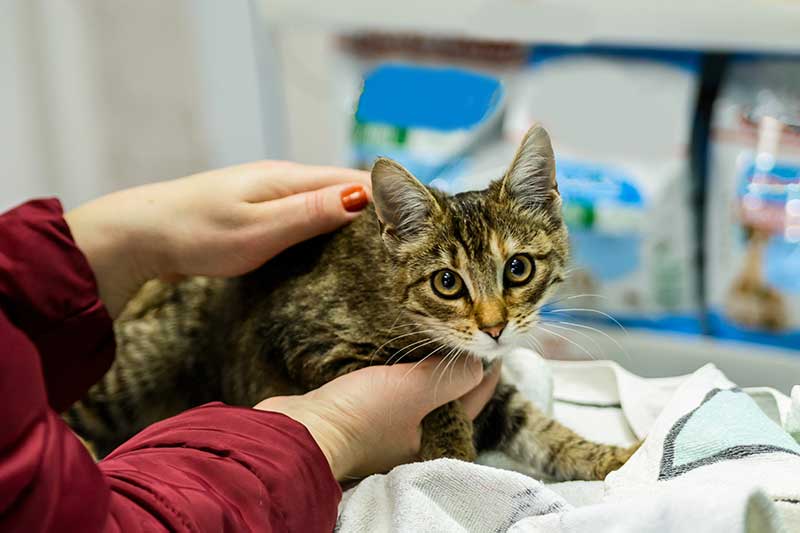Pain Management and Alternative Therapies

Many cats and dogs spend their days dealing with aches and pains—especially as they get older. But they don’t make it easy for their pet parents to find out about it.
The good news is that we can help you identify signs of pain and discomfort in your pet. Once we know what’s going on, we can help ease your pet’s discomfort.
Common Causes of Chronic Pain in Pets
All sorts of different conditions can cause your pet to experience chronic pain. Here are a few common culprits:
- Arthritis: This degenerative joint disease is extremely common in dogs and cats, and it's caused by a mix of factors. These include normal wear and tear, genetics, injuries, obesity, and infections. Arthritis often causes achiness, stiffness, and sometimes sharp, stabbing pain.
- Hip dysplasia: Common in larger breeds, this condition is caused by a mix of genetic and environmental factors. One of the most telling signs of hip dysplasia is a limp that doesn’t go away after a day or two.
- Spinal problems: Herniated discs and other spine issues can cause significant pain, nerve damage, and mobility problems for your pet.
With pain management and therapy, we can help reduce your pet’s pain level so she can live a happy, healthy life with you.

Signs of Pain in Pets
Dogs and cats are notorious for hiding their pain from others. Since our pets can’t talk to us, pet parents must keep an eye out for common signs of pain. These can include:
- Decreased activity or reluctance to move
- Limping or favoring a limb
- Vocalizing more (whining, growling, or yelping)
- Changes in behavior, like aggression or withdrawal
- Difficulty getting up from a lying-down position
- Difficulty jumping or climbing stairs
- Excessive licking or grooming of a certain area
- Panting, trembling, or restlessness
If you notice any of these signs of pain, contact us as soon as possible to schedule an appointment. We will use a combination of diagnostics and pain management strategies to ease your pet’s discomfort.

Types of Pain Management We Offer
We offer a range of pain management therapies. These include, but aren’t limited, to:
- Laser Therapy: This non-invasive treatment uses low-level laser light to reduce pain and inflammation, and promote healing in your pet. We often recommend it for pets with conditions like arthritis, injuries, or post-surgical recovery.
- Librela: A monthly injectable treatment, Librela helps reduce arthritis pain in dogs by targeting and neutralizing nerve growth factor.
- Solensia: This monthly injectable helps manage arthritis pain in cats. It targets nerve growth factor and works by reducing pain signals to your pet’s brain.
- Adequan: Adequan Canine is an injectable treatment that helps protect your dog’s joint cartilage, which improves mobility and helps treat arthritis.
- Oral Joint Supplements: We offer various oral joint supplements to strengthen and protect your pet’s joints, which helps reduce arthritis pain.
If your pet is showing signs of pain, contact us today by calling (210) 824-7481. We look forward to helping your pet feel more like themselves!

